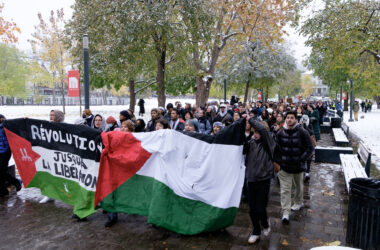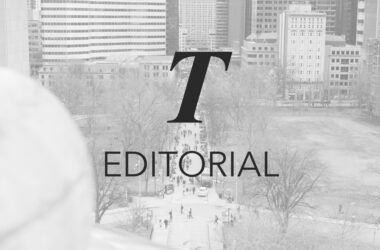 McGill Tribune
McGill TribuneInvestigating the underwater, oft-unseen part of the university admissions iceberg in North America makes one thing painfully clear: the supposed commitment to equality is often tainted by status-quo-maintaining political schemes. Statistics of demographic and performance correlations for students show varying results, but one is obvious: more and more students of Asian background consistently out-perform their peers who have non-Asian backgrounds.
The backlash has been as alarming as it has been amusing. Matt Parrot, director of a white supremacist group in Indiana, wrote in a piece warning against the Asian rise in academic and occupational excellence, “They exploit our Western meritocratic tradition to obtain positions of influence through merit.” How obtaining positions, within the parameters of a system, exploits said system is something he fails to explain. If you play by the rules, how can it be called unfair if you win? The subtext is fairly obvious: increased Asian success in the West means a less white West, which probably scares the hell out of people like Parrot.
This racism is not only found in fringe interest groups, but also within the ivory towers of America’s top universities. Princeton sociologist Thomas Espenshade studied 10 prestigious U.S. schools’ admission statistics. He found that Asian applicants needed to score 140 points higher on their SATs than white applicants to gain admission. A controversial Maclean’s article quoted one professor even equating the present situation with the way ambitious and hard-working Jewish students were marginalized in the first half of the 20th century by Ivy institutions in America, and by McGill.
For the most part Canadian universities these days rely strictly on non-biased, transcript-based procedures. This has led to surging numbers of Asian students in Canada’s top schools, proof that their high school grades blow the rest out of the water. At the University of British Columbia, 43 per cent of the undergrad students ethnically identify themselves as either Japanese, Korean, or Chinese.
Canada’s situation is not without its problems. Stereotypes and group lines are drawn tight on some university campuses. The same Maclean’s article mentioned that the two computer science buildings on the University of Waterloo campus are unofficially designated by students as “mainland and downtown China,” where days can go by without a word of English being heard. If this is the result of a genuine meritocracy, then so be it. But not to the detriment of tolerance and cultural understanding.
Our own campus isn’t fraught with such tensions, perhaps because our humanities programs are unusually strong, increasing dialogue, understanding, and tolerance. Or, a less cheery scenario, campus dialogue is stymied by non-budging political correctness, which does not allow honest conversations about racial divides. Either way, this trend of high performance among students of Asian descent is real—a victory for both meritocracy and democracy. Let’s not ignore it.








